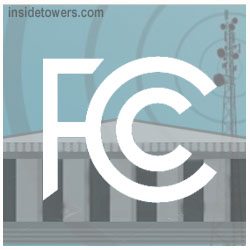
The updates identify specific fee levels for small wireless facility deployments “that presumably comply with the relevant standard,” according to the text. Crown Castle told the Commission, it has experienced, “excessive and unreasonable fees to access the [ROW] that are completely unrelated to their maintenance or management.” Crown also told the FCC of “onerous” zoning requirements imposed on small cells compared to “utility installations erected with simple building permits.” AT&T cited localities in Maryland, California, and Massachusetts that imposed fees so high it had to pause or decrease deployments, according to the Commission.
Two new shot clocks would be established for small cells, (60 days for co-location on pre-existing structures and 90 days for new builds), Inside Towers reported. AT&T cited a California town that took 800 days to process an application.
T-Mobile referenced Hempstead, NY, which required providers that want to co-locate or upgrade equipment on existing towers to be certified under more strict standards that apply to national defense and military facilities. In Minnesota, Verizon has been trying to get approvals for small cells since 2014 in a town that has no approval process in place.
The proposed Declaratory Ruling and Third Report and Order codifies the existing 90 and 150 day shot clocks for what the FCC describes as “non-small” wireless facility deployments that were established in 2009. The FCC makes it clear that all state and local government authorizations necessary for the deployment of personal wireless service infrastructure are subject to those shot clocks.
The agency concludes, “that a failure to act within the new small wireless facility shot clock constitutes a presumptive prohibition on the provision of services. Accordingly, we would expect local governments to provide all required authorizations without further delay.”
In response to the draft, Wireless Infrastructure Association President/CEO Jonathan Adelstein stated: “As promising as 5G is, it’s only as good as the infrastructure on which it’s deployed.” He commended the commissioners for “recognizing the critical role of wireless infrastructure for 5G deployment,” and said WIA is pleased the agency has stated its intention to complement the work of over 20 states that have enacted their own 5G legislation.
Comments? Contact leslie@insidetowers.com
September 6, 2018



